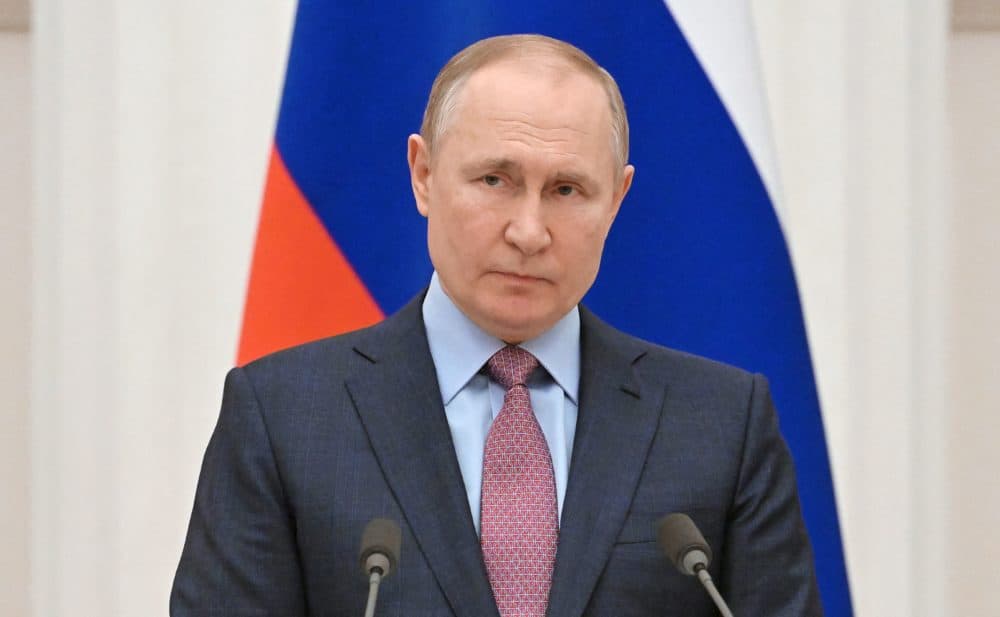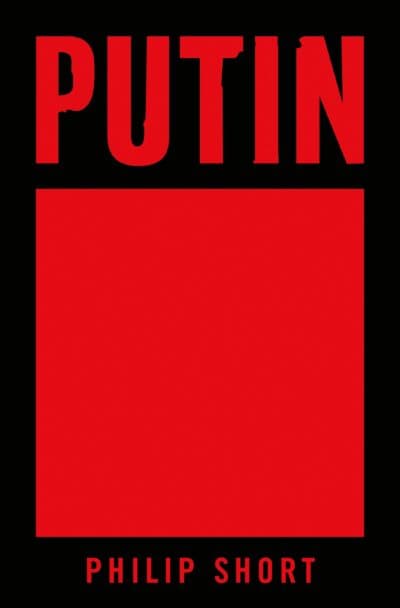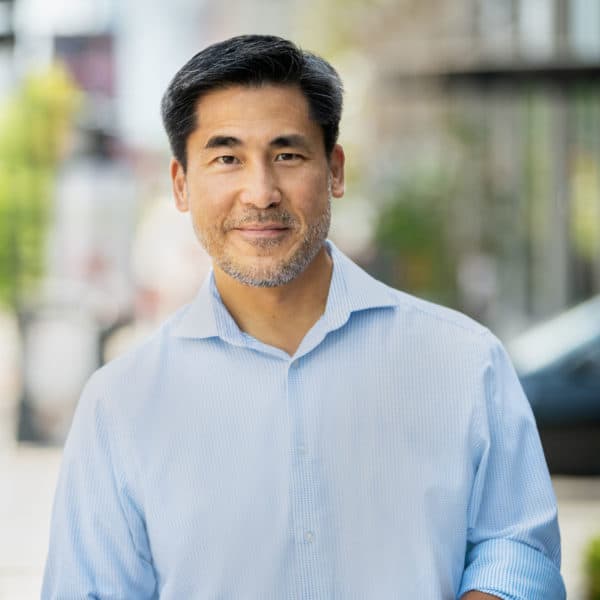Advertisement
New biography 'Putin' takes a deep dive into the Russian leader

Editor's note: This segment was rebroadcasted on Dec. 26, 2022. Find that audio here.
Vladimir Putin may be the most dangerous man in the world. But longtime foreign correspondent Philip Short is taking a closer look into the Russian President’s story.
Short’s new book “Putin” examines Putin’s life and how he became the leader he is today, one that associates describe as a shapeshifter or unreliable narrator. The book also dives into Putin’s complicated relationship with the West, how he functions as a leader in Russia, and how Russia has become more authoritarian over time.

Interview Highlights
On Putin’s story working as a KGB intelligence officer in the ‘80s, where a mob allegedly threatened to storm the KGB headquarters
“It's theatrical, isn't it? Moscow is silent and it's a paraphrase of [Alexander] Pushkin. He is a person who is in many respects an actor. He assumes guises. If you actually look back at what happened that day, there wasn't a mob storming the KGB headquarters. Yes, there was a crowd who were pretty angry, but they weren't going to do anything. And he dramatized that in his mind. And he said Moscow was silent.
“Actually, the local Red Army base sent in troops to help him within thirty minutes. So this is typical. You have to be very, very careful in what you believe in. One of his friends, a German businessman in St. Petersburg in the 1990s, says he's a shapeshifter. He assumes guises, he assumes images which fit with the narrative that he wants to tell and with the person he's talking to.”
On how Putin spun the narrative when discussing the story years later
“The narrative essentially is one which we've heard very often since that the collapse of the Soviet Union, the humiliation of the Soviet Union, the failure of the Soviet Union to defend its friends. This was a monumental tragedy. But again, you've got to watch it rather carefully, because he's also said anyone who doesn't want the Soviet Union back again, anyone who doesn't regret the collapse of the Soviet Union doesn't have a heart. Anyone who actually thinks that it should be brought back, who think they could bring it back, doesn't have a head.”
On if Putin was open to closer relations with the U.S., NATO and Western Europe
“Putin did genuinely believe that Russia's future was with the West, that Russia's future was certainly as part of Europe, and that Russia should become part of what he called the ‘civilized world,’ which was the Western led-world. So when people say he's been kind of acting from the very beginning and he was always deeply hostile to the West. That is simply not true. There's been an incremental change which has spread out. It's been a kind of tragic inevitability in many ways of what has happened over the last twenty years from really genuinely pro-Western Putin to a very hostile Putin.”
On what Putin thought about George Bush’s 2005 inaugural address, which acknowledged Central and Eastern European citizens’ right to decide their future.
“[Putin] was reading it as a commitment by the United States to promote democracy in the rest of the world, but not just democracy, but the American conception of democracy. And it was one of the elements which convinced Putin that America wanted to call the shots and that Russia would absolutely have to follow both countries.
“I think it's really important to say this. Both countries, the United States and Russia, made mistakes. Things could have worked out differently. But who won the Cold War? America won the Cold War. It's always the victor in a war who determines what the subsequent evolution of events is going to be. If you look at the various things that America did, it's not just NATO's expansion, that's possibly not even the most important. But walking away from the Anti-Ballistic Missile Treaty because it was was seen as constraining ability, America's ability to develop new weapons systems.
“The Iraq War, where not just Russia, but many of America's allies were in disagreement. The decision to set up a national missile shield in Europe against missiles supposedly coming from Iran and North Korea. There were a whole load of things which the Russians really didn't like and they felt, look, after 9/11, we gave you enormous help. We gave you transit rights through Russian airspace. We helped to make available bases in Central Asia and so on. And what did we get back? So rightly or wrongly, and this is a question of perception as much as anything else, a perception developed that America was trying to constrain Russia, to contain it, to bring it to its knees and make it follow American diktat. And that is what over the years and again, lots of Russian fought, that has led to the situation we're in today.”
Advertisement
On what’s happening in Russia as relations with the West deteriorate
“I think it's a kind of vicious circle. As relations with the West deteriorate. Russia becomes more authoritarian. This is not something which just happened under Putin. If you look back at the Soviet Union, that was a trend then and indeed even earlier in imperial times. And what you've had, is as everything has turned sour with the West, Russia has moved and Putin's regime has moved from a kind of relatively open authoritarianism to a very closed dictatorship, becoming not yet completely totalitarian, but it's moving closer and closer to a totalitarian system.”
On if there’s a connection between outside relations and how Putin rules Russia
“As relations with the outside deteriorate, the hard liners, the hawks in Russia say, ‘Look, we've always told you this, those westerners were completely untrustworthy.’ And their influence increases. And the liberals, those who want closer relations with the West, they are increasingly excluded from decision-making. So it kind of becomes a self-fulfilling prophecy. Relations go down, hawkishness goes upward in Russia, the dictatorial part of the regime gets stronger and freedoms are restrained increasingly, and you get a much more dictatorial system. And that's exactly what we've been seeing happening over the last three or four years.”
On if Moscow’s relationship with the West will change in the future
“I don't think it will. Not quickly in 20, 30 years time, perhaps. Indeed, probably because there is a generation that will be a generation that comes to power that was not alive in Soviet days. But it depends not just on Russia. It depends on us as well, whether we are capable of bringing about a security architecture in Europe, which the Russians feel is not threatening and where conflict is ruled out. It's both sides. It takes two to tango. We both have to change our attitudes, the Russians in particular. But us too.”
Emiko Tamagawa produced and edited this interview for broadcast with Gabe Bullard. Jeannette Muhammad adapted it for the web.
Book excerpt: 'Putin'
by Philip Short
Baskov Lane
Vladimir Putin was born on Tuesday, October 7, 1952, at Maternity Hospital No. 6, known locally as the Snegiryov hospital, five minutes’ walk from his parents’ home on Baskov Lane, which, despite its name, was a straight, wide street of what had once been elegant nineteenth-century apartment buildings, now shabby and dilapidated, just north of Leningrad’s principal thoroughfare, Nevsky Prospekt, leading to the Winter Palace.
The hospital, founded in 1771 by Catherine the Great, was the oldest in Russia and the largest and reputedly the best in Leningrad. That was not saying a great deal. In Russian maternity clinics in those days, expectant mothers were crammed into filthy wards, infested with cockroaches, with blood and faeces on the floor and soiled bedlinen, where they were left to the mercy of nurses who, when they were not sadistic, were often callous. ‘It doesn’t hurt when you’re screwing your husband, does it, but now you’re having a baby, you’re wailing,’ one woman remembered a midwife telling her. Even at the Snegiryov, cleanliness was rudimentary and painkillers were unknown. Babies were separated from their mothers for 36 hours after birth. From the outset it was the survival of the fittest. One newborn in 50 died before leaving hospital. Husbands were kept away, and Putin’s father had to stand on the street outside with the other men, hoping to see his wife at one of the windows and to learn from her or another woman if the birth had gone well and whether he had a son or a daughter.
Other traditions proved equally tenacious. In the cities, infants were no longer swaddled, as they were in the countryside; instead they were ‘wrapped tight’, so that they could not move, which amounted to the same thing. Otherwise, it was believed, their arms or legs would ‘turn out crooked’. Forty years later, a French medical team visiting the city was appalled to find that this ‘medieval practice’ continued and ‘no one questions that it is correct.’
Young Volodya, as his parents called him, spent the first weeks of his life in a wicker basket, suspended from the ceiling, as had been the custom in the countryside. Both his father and mother had grown up near Tver, on the Volga River, 110 miles north-west of Moscow along the main highway to Leningrad. They lived in neighbouring hamlets which had once formed part of the domains of a Privy Councillor to Tsar Alexander the First, where Putin’s great-grandfather, Ivan Petrovich, had been a serf. Ivan’s son, Spiridon – Putin’s grandfather – had moved to St Petersburg, then Russia’s capital, in the 1890s, to train as a chef, eventually taking charge of the kitchens at the Astoria Hotel, the newest and most luxurious establishment in the city, built for the tercentenary of the Romanov dynasty in 1913. The family was comfortably off and lived in an apartment in nearby Gorokhovaya Street. It was there, two years earlier, that Putin’s father, Vladimir, had been born. Among Spiridon’s regular clients was Grigory Rasputin, the Siberian mystic whose hold over Tsar Nicholas II and his wife, the Tsarina Alexandra, helped bring about their downfall. According to family legend, when Spiridon cooked for him, the monk would tip him a ten-rouble gold coin. But after the Revolution, the hotel closed and the rooms were taken over by Communist Party officials. The banks closed, too, and Spiridon, a frugal man, lost his considerable savings. As the White Russian armies, backed by the European powers, sought to strangle the new revolutionary regime at birth, civil war broke out. The Bolsheviks’ leader, Lenin, unleashed a ferocious wave of terror against suspected counter-revolutionaries, conducted by the newly established Cheka, the ancestor of the KGB, which claimed at least a hundred thousand lives. Famine set in, killing five million more. In Leningrad two thirds of the population, recent immigrants from the countryside, fled back to the villages from which they had come. The city became a wasteland, with grass growing in the streets.
Spiridon left, too, taking the family to his birthplace at Pominovo, a tiny settlement of crooked wooden houses straight out of a painting by Chagall, strung out along either side of a narrow dirt road, three hours on foot from Tver. It was there that his second son, Putin’s father, Vladimir, met his future wife, Maria Ivanovna Shelomova, from the hamlet on the other side of the river. They married in 1928, when both were seventeen, and four years later moved to Peterhof, then a small garrison town that had grown up around Peter the Great’s seafront palace on the Gulf of Finland, 20 miles west of Leningrad, where Maria’s elder brother, Pyotr, who had wed Vladimir’s younger sister, was living. At first the two couples shared a single room. But in 1934, after Vladimir had completed his military service as a submariner in the Baltic Fleet, he and Maria finally obtained a room of their own. Two children were born: Albert, who died of whooping cough in infancy, and Viktor, who succumbed to diphtheria when he was about two years old during the blockade of Leningrad in March 1942.
Viktor’s death has given rise to many unanswered questions.
As the Germans advanced on Peterhof at the end of August 1941, Maria and her baby son were alone: her husband was with the Red Army, no one knew where or even whether he was still alive. Another of her brothers, Ivan, a naval liaison officer attached to the Communist Party’s Regional Committee, brought her to Leningrad and found her a place to stay with relatives. But the city was already in the grip of famine and as a refugee from the suburbs, she had no ration book and no way of obtaining food for herself and her small son. At first Ivan shared his own rations with them, but after he was transferred away from the city, their situation became desperate.
There are conflicting accounts of what happened next. Putin remembered his parents saying that the authorities took his brother away, against his mother’s wishes, and placed him in an orphanage on the grounds that he would have a better chance of surviving the winter there than if he stayed with her. Another version, which may have come from Putin’s mother herself, recounts that one day, when she was too weak to move, ‘two young women came to her door. She asked them, “Take my son. Save him.” And they took the boy away. A few days later she learnt that he had died.’
Neither version is credible.
The city’s orphanages did not accept children under three years old, and Viktor was not yet two. The 30,000 or so orphans rescued from the streets or from empty, freezing apartments in the winter of 1941–2, when the city was blockaded by the Germans and starvation was at its height, were all from families where the adults had died and there was no one left to take care of them. At least as many others were left to fend for themselves because there were not enough places. Moreover conditions in the shelters were often appalling. The staff stole the children’s food; the dormitories were unheated; in some establishments, one child in six died in the first weeks after admission. Even in Moscow, which was far better provided for than Leningrad, the orphanages had a dreadful reputation. One mother, who had been warned by a friend that she would be well advised to bring her daughter home, found when she went to fetch her that the children’s stomachs were swollen with hunger and they were all covered in lice.
The story of the two mysterious young women is even less believable. At a time when the whole city – apart from the Party elite, which was well fed throughout the war – was maddened by hunger and everyone knew that there were cases of cannibalism, no parent, however desperate, would surrender their child to strangers.
One may legitimately wonder whether, behind Viktor’s death, there lurked a family tragedy which no one would ever discuss. Putin himself did not learn until long afterwards that his brother had been buried in a mass grave in the Piskaryovskoe Cemetery, with some 470,000 others who had died during the blockade.
Excerpted from 'Putin' by Philip Short, published by Henry Holt and Company July 26 2022. Copyright © 2022 by Philip Short. All rights reserved.
This segment aired on July 26, 2022.

